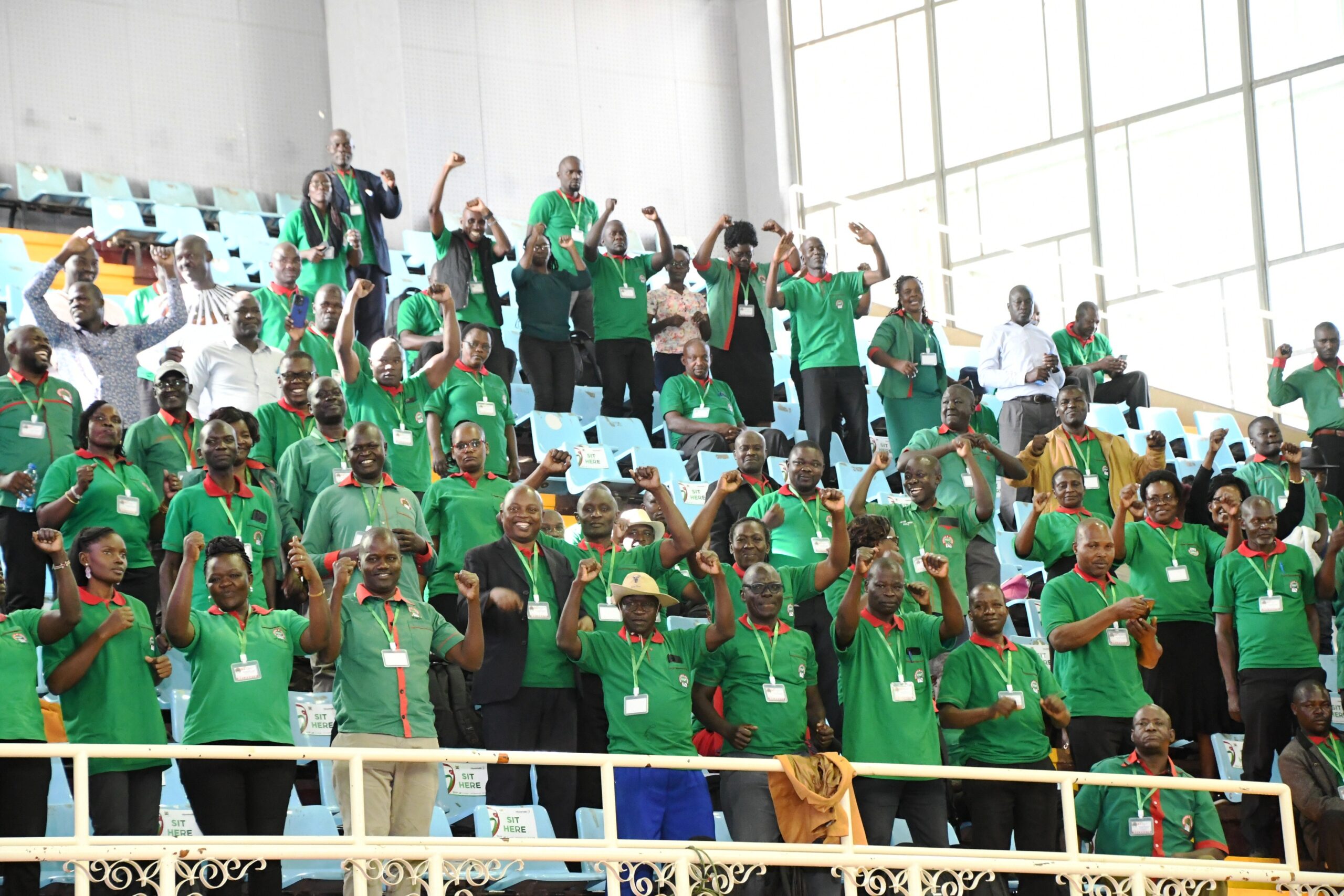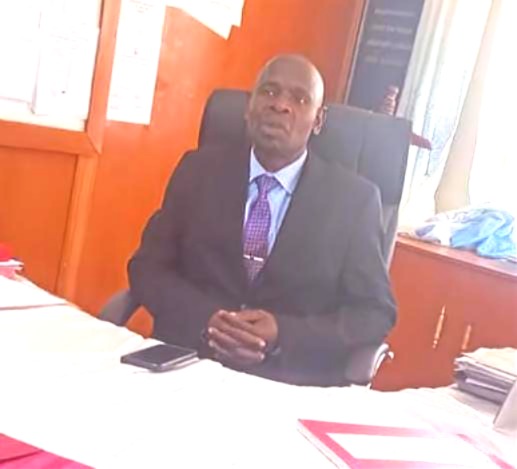The Kenya National Union of Teachers (KNUT) has urged the government, through the employer, the Teachers Service Commission (TSC), to revise the teachers’ recruitment policy to prioritise academic excellence, rather than exclusively relying on Kenya Certificate of Secondary Education (KCSE) grades.
KNUT Secretary General Collins Oyuu, in a recent interview with Education News, noted that the commission should put more emphasis on academic advancement, decrying that numerous qualified individuals are being unjustly excluded from the teaching profession, despite achieving higher academic qualifications at the degree and master’s levels.
He stated that the existing requirement, which requires a candidate to have attained at least a C (plain) in KCSE to qualify for recruitment as a diploma teacher, is outdated and discriminatory towards those who have improved their academic standing.
“Are you aware that some of our university lecturers received D+ (plus) grades in KCSE but advanced their education to become graduate lecturers? Honestly, TSC, why are you preventing teachers who achieved a C (plain) in KCSE yet have graduated with a degree from teaching Grades 7, 8, and 9?” You questioned.
He insisted that the highest educational level attained by an applicant should be the main factor to consider during recruitment, highlighting that many teachers have made substantial sacrifices to elevate their qualifications while working.
“A teacher who chooses to enhance their qualifications makes significant sacrifices. It requires studying late into the night while continuing to teach students. We need to have an earnest discussion with TSC regarding this issue,” he said.
To support his argument, Oyuu cited the example of a professor who received a C- in KCSE but, after pursuing further education abroad, is now a distinguished scholar in religious education and Kiswahili.
Higher Qualification vital, not KCSE grade
“He studied at Kampala International University in Uganda, later returned to Kenyatta University, and furthered his studies through online learning at a university in the United States. He has become a professor. So what should be considered? It is the final qualification, not the KCSE grade,” he asserted.
He contended that evaluating applicants solely based on their KCSE performance overlooks other essential factors that may have impacted a student’s results at the time.
“If that same teacher had attended a prestigious national school, they might have achieved an A,” he remarked.
Oyuu urged the commission to reconsider its recruitment criteria and prioritise teachers’ competency and most recent academic accomplishments, especially considering the understaffing issues currently affecting the education sector.
He disclosed that due to the teacher shortage, some teachers are required to manage over 100 students in a single class, far exceeding the recommended student-to-teacher ratio.
“This significantly surpasses the recommended teacher-to-learner ratio of 1:45 as established by UNESCO. We appeal to the Head of State, Dr. William Ruto, to assist in addressing this gap,” he said.
Furthermore, the union leader encouraged Junior Secondary (JSS) teachers to foster collaboration with their counterparts from primary schools, reminding them that all educators share a collective goal.
“We encourage our young men and women instructing in JS, which is based in primary schools, to keep in mind that a teacher is a teacher. Do not regard other teachers as lesser. A great teacher is ageless,” he stated.
A great teacher is ageless
At the same time, the union has appealed to the government to adjust the retirement age, allowing the most experienced teachers nearing retirement to mentor those joining the service.
“For instance, teachers above 45 years have a lot of knowledge and skills that they can teach students and also empower the Junior Secondary Students’ (JSS) teachers,” said Oyuu.
According to KNUT, most schools in the rural areas have a shortage of teachers, yet teachers retire at an early age of 60, when they are still capable of offering teaching services. Oyuu argues that this is achievable through the government regulating retirement policies for teachers.
“The government can regulate the training of teachers by adjusting retirement policies to retain experienced educators for longer periods. By doing this, veteran teachers can mentor new trainees. Through these, the education sector would benefit from a more experienced and better-prepared teaching workforce because when we limit who can teach, we limit what students can learn,” said Oyuu.
READ ALSO:
KNEC pushes for key reforms in the administration of assessments under new Bill
He insists that the money used to fund training on CBC should be used to improve schools’ infrastructure, such as modern educational facilities, including classrooms, dormitories, laboratories, and dining halls. Also, buy books, charts, and teaching and learning aids, such as plasticine, which will help save on the cost of living for many parents.
Oyuu lamented that for the last three years, many teachers decried that they were not employed despite their educational qualifications, and so in 2024, when TSC advertised for 4,800 teaching jobs, a whopping 304,000 applied, with only 10,000 teachers being shortlisted, adding that the commission has admitted that there is a shortage of 98,000 teachers in the basic education system.
“Does this mean that the 304,000 teachers who did not qualify for the 2024 TSC interview are not qualified to be teachers? There is a public outcry about politicising the education sector. At a funeral in Kisii, TSC employment letters were being dished out by a former Cabinet Secretary. The constitution of Kenya, 2010, Article 237 2 (b), states one of TSC’s functions, which is to recruit and employ registered teachers,” said Oyuu.
Marginalised and Hardship Areas
In addressing teacher shortages in marginalised areas, such as the Northern region, which comprises Garissa, Wajir, Turkana, and Samburu, KNUT argues that the commission should consider training local residents and subsequently employing them as teachers.
“Most teachers employed to teach in these areas come from different regions, yet there are qualified teachers who reside in those regions but don’t have jobs. When calamities arise, most of the employed teachers flee the regions, leaving the children helpless,” said Oyuu.
“Does this also mean that the children have no right to education according to Article 53 of the Kenyan constitution, which highlights that every child has the right to free and compulsory education? To curb this issue, TSC should offer their support in training and employing teachers from those areas,” he added.
Furthermore, in protecting teachers in hardship areas, the union has called on the government to implement measures that ensure teachers in these areas are well protected and have improved terms of service, including increasing the hardship allowance and avoiding cuts.
The union explains that hardship in the teaching profession refers to the challenging conditions faced by teachers working in designated areas characterised by factors such as remoteness, lack of infrastructure, and insecurity, being the most prevalent, adding that teachers posted in these areas always have a cross to carry.
“According to the TSC code of regulations for teachers, article 91 states that the commission shall, at a determined rate, pay hardship allowance to a teacher assigned to teach in a school situated in a designated and gazetted hardship area. This helps them earn a living, but it doesn’t restrain their lives from being in danger,” said Oyuu.
Enhancing security, safe houses
According to KNUT, the government should ensure that the security in those areas is tightened by deploying more Kenya Defense Forces (KDFs) and further building more teacher training colleges (TTCs) to train teachers from those areas, which will improve issues such as language barriers between the teachers, students, and the communities around them.
They should also provide safe housing for teachers, which means constructing secure and well-protected teacher housing facilities within school compounds, and enhancing mental health programs for teachers by providing counselling and psychological support for those who have experienced traumatic events.
“Teachers are gardeners of the human mind, and without them, our future dreams wouldn’t exist. Every profession owes their skills and wisdom to a teacher, and therefore, the government should acknowledge that and safeguard our teachers for a better future,” stated the KNUT boss.
Our Vision
To become the most effective and self-reliant teacher union in the world.
Mission
To unite teachers of all grades for quality service, socio-economic improvement, and professional advancement and strengthen their bargaining power, and promote quality education.
Our Core Values
- Integrity:We are committed to honesty, accountability, and transparency in all our undertakings.
- Equity: We are committed to gender equity, social justice, and unity of teachers of all grades and qualifications.
- Teamwork: We embrace teamwork and are committed to participatory decision-making.
- Continuous Improvement: We are committed to the continuous improvement of the terms and conditions of service for all teachers.
- Professional interest:We shall endeavor to promote the educational development of the teaching profession.
- Efficiency: We strive to achieve the highest value of benefits for all our members.
- Courage and Bravery: We shall tirelessly and bravely continue to fight for the rights of our members.
By Hezron Roy
You can also follow our social media pages on Twitter: Education News KE and Facebook: Education News Newspaper for timely updates.
>>> Click here to stay up-to-date with trending regional stories
>>> Click here to read more informed opinions on the country’s education landscape
>>> Click here to stay ahead with the latest national news






